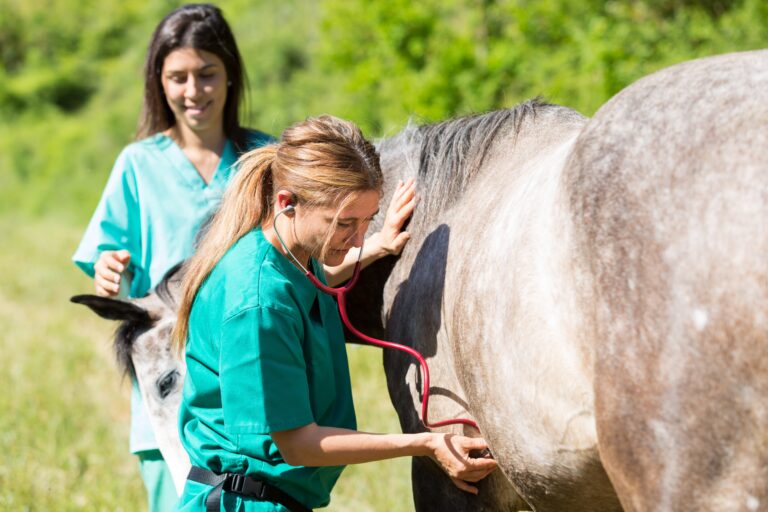
In this episode of The Business of Practice podcast, Emma Read, DVM, MVSc, DACVS, 2022 AAEP President and Associate Dean for Professional Programs at the Ohio State University’s College of Veterinary Medicine, discussed competency-based education for veterinary students and the feedback methods that accompany it.
Competency-Based Framework for Veterinary Students
Read has been involved with changing veterinary education for over a decade, seeking to create a more positive and productive learning environment. “Students today are different than we used to be,” she said, and there are different standards, resources, and requirements for students today than in the past. At a 2015 meeting of veterinary school deans, the group could not agree on standardized methods and benchmarks to measure students’ progress. Therefore, they created a task force to develop a list of competencies required for graduation. This work took several years but resulted in a competency-based framework that was published by the American Association of Veterinary Medical Colleges (AAVMC).
The framework is broadly applied in most health professions. It includes communication skills, collaboration, and clinical skills reasoning. The framework includes competency buckets, basic developmental steps for each of the competencies, and entrustable professional activities. Read described these in the podcast.
Effective Feedback and Entrustable Professional Activities
Veterinarians can more effectively mentor students or early-career colleagues by understanding the concept of entrustable professional activities. In addition, when providing feedback, they should focus on what went well and what the mentee can do better next time. “They expect help to improve,” Read explained. It’s important to learn these new communication and mentorship skills, she said, because from kindergarten through high school and into college, feedback in competency is the new way. Therefore, mentors are expected to give feedback through competencies.
Final Thoughts
In closing, Read said, “Educators and mentors have a responsibility to mentor more effectively. Recognize there are things you need to know and learn about.”
Learn more about competency-based education here.
About Dr. Emma Read
Emma Read, DVM, MVSc, DACVS, is a veterinary graduate of the Western College of Veterinary Medicine in Saskatoon, Saskatchewan, Canada. She completed a large animal surgery residency at the University of Georgia’s College of Veterinary Medicine in Athens in 2003. She became a diplomate of the American College of Veterinary Surgeons in 2004. After working at the Ontario Veterinary College in Guelph, Ontario, as a staff surgeon teaching large animal surgery for a few years, she joined a private surgical referral practice just outside Calgary working with international sport horses.
In 2007, Read was hired at the University of Calgary’s newly established Faculty of Veterinary Medicine. She served as a faculty member and the Chair of the Clinical Skills Program from 2008-2015 and in 2015 was appointed to serve as an Associate Dean of Academics. In 2018, she became the Associate Dean for Professional Programs at The Ohio State University’s College of Veterinary Medicine, where she oversees students and the curriculum, including currently leading a major curricular redesign at the college.
Related Reading
- AAEP Commission on Veterinary Sustainability: Student Programs
- Essential Skills for Mentors in Equine Practice
- AAEP Wellness Coverage: Using Competency-Based Education to Give Young Practitioners Feedback
Stay in the know! Sign up for EquiManagement’s FREE weekly newsletters to get the latest equine research, disease alerts, and vet practice updates delivered straight to your inbox.









